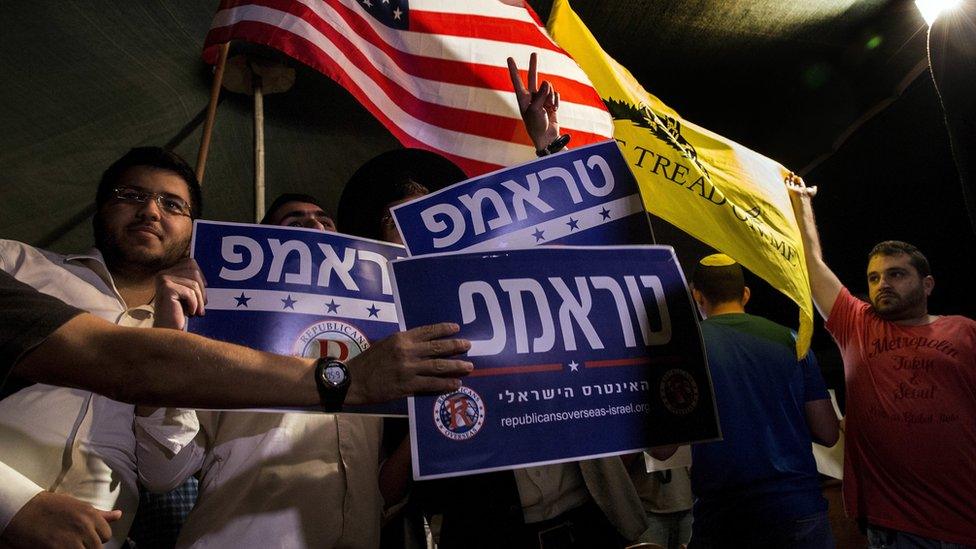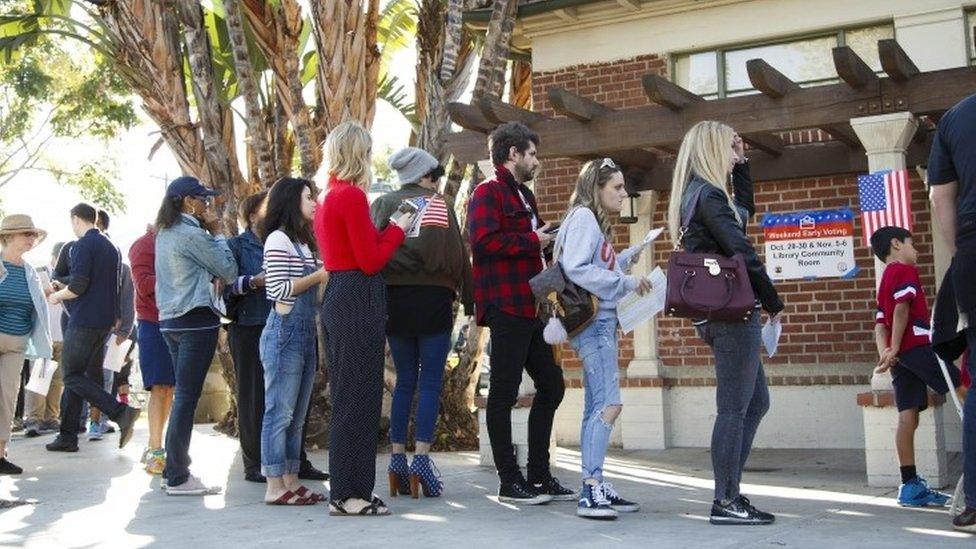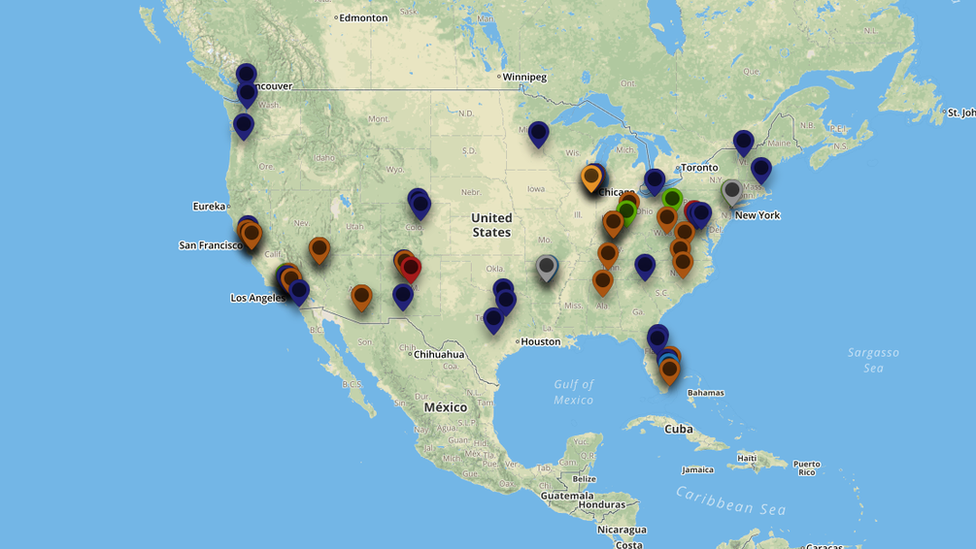US election 2016: The difficulties voters may face
- Published
At long last the US presidential campaign is at an end, and the choice now lies with American voters.
But with long queues during early voting in some states already reported, will the process go smoothly on the day?
Here are some of the possible complications facing the US electorate.
Voting away from home
Wherever they are, eligible US voters have been urged to cast their ballots - and as early votes go, none can be more spectacular than those cast by two American astronauts.

Shane Kimbrough filed his vote from space
Shane Kimbrough filed his ballot from the International Space Station (ISS) a few days ago, according to Nasa. The space agency also said that the US space station's previous resident, Kate Rubins, voted before returning to earth a week ago.
Meanwhile. terrestrial overseas voters have been having their say too.
More than 2.6 million potential voters live abroad. An Oxford University study, external argued that in a tight race, they could tip the balance, although turnout among overseas voters in previous elections has been low.
Canada (661,000), Britain (306,000) and France (159,000) have the highest populations of overseas US voters.

Israel has a significant number of American expatriate voters
Those eligible must register with their local election authorities. Then, depending on their state, they must return their ballot by mail, email or - for those voting from the 1980s - fax.
There are also over 200,000 US military personnel stationed abroad, official figures show, external, from Afghanistan to Zimbabwe and scores of countries in between.
A Military Times, external poll in September found that service members narrowly favoured Republican Donald Trump over Libertarian candidate Gary Johnson.
Some Americans will miss out, though - residents of US overseas territories (Guam, Northern Mariana Islands, Puerto Rico and the US Virgin Islands) aren't allowed to vote unless they move to one of the 50 states.
Meanwhile, people who live in the US territory of American Samoa must be naturalised first before they can vote.
Early voting challenges
Long queues have been a feature of this presidential election, with hefty waits reported, among others, at early voting in California, Nevada, Ohio and North Carolina.
In Georgia, people reportedly fainted from heat exhaustion, external as they stood in line.
Some see this as an encouraging sign of enthusiasm for the democratic process.

These voters waited in line for almost four hours in California
But Vox has called the queues, external a "foreseeable, avoidable problem - the result of poor foresight, misallocated resources, or deliberate neglect - that threaten Americans' ability to vote".
In North Carolina, for instance, several counties reduced early voting in what a court deemed an attempt to suppress the black vote.
Despite similar queues in the 2012 elections, other states have tightened up early voting.
There are numerous other restrictions in place at local level - Arizona passed a law banning third-party ballot collection, which critics say in practice will disenfranchise voters who find it difficult to reach polling stations.
More queues began forming as polls opened on election day. But in many states, if you are still in line when they close, you are still allowed to vote.
The dangers of intimidation
After Donald Trump repeatedly warned of a "rigged" election, his campaign deployed poll watchers to hunt for voter fraud.
In response, Democrats filed several lawsuits alleging it was an attempt to get Republican supporters to intimidate minority voters.
Courts, however, have disagreed and refused to impose restrictions.
There is little to suggest any substantial evidence of voter intimidation or fraud, which studies have found remains a rarity in US elections. There have been some problems reported regarding confusion over changes to voter ID laws.

This Kenyan initiative will crowd-source any voter violations
Investigative journalism site ProPublica has set up a Twitter feed, Electionland, external, so US voters can log any issues they encounter.
Also helping with monitoring is a team from Kenya, external, who are using a crowd-sourced map to report voter suppression.
Ushahidi was born out of the crisis that followed disputed elections in Kenya in 2007 that left more than 1,000 people dead.
"Our motto is, 'raise your voice'," Daudi Were, executive director for the company, told Quartz, external.
"Your voice is important. If you see something, positive or negative, then you can share that with us."